Passing-On Defense and Indirect Purchaser Rule in Compensation Claims Arising from Competition Law
Introduction
An illegal price increase as a result of a competition law infringement primarily affects direct purchasers. Direct purchasers may then pass this increase on to their purchasers operating in sub-markets, namely, indirect purchasers. In such a case, the infringing undertakings that are subject to compensation claims may argue that direct purchasers have passed their damages on to indirect purchasers (passing-on defense); therefore, they are not harmed by the competition infringement. In this regard, indirect purchasers may wish to bring actions against the infringing undertakings, by claiming that the damage has been passed on to them. The discussions concerning the competition law doctrine with regard to the standing of indirect purchasers are known as the “indirect purchaser rule.”
The right to bring compensation claims arising from competition law is regulated under the Act on the Protection of Competition numbered 4054 (“Competition Act”) Art. 57 et seq. However, the Competition Act does not include any explicit rules with regard to the passing-on defense and the indirect purchaser rule. Furthermore, the Court of Cassation does not have established case law on these issues. Below, we will elaborate on their European Union (“EU”) and Turkish practice.
Passing-On Defense
Definition
Goods and services pass through stages of the supply chain until they are offered to end consumers. The undertakings that increase their prices illegally at any stage of this supply chain cause damage to purchasers or end consumers who have bought these goods and services at a higher price. Compensation for this damage is regulated under Art. 57 of the Competition Act. Accordingly, anyone who prevents, distorts, or restricts competition via practices, decisions, contracts or agreements that are contrary to the Competition Act, or abuses his dominant position in a particular market for goods or services, and is obliged to compensate any damages suffered. In this vein, the undertakings faced with lawsuits filed in line with Art. 57 may claim that the claimants actually passed their damages on to their purchasers; in other words, the passing-on defense. Within this possibility, claimants do not have the right to file a lawsuit since they did not suffer any damage. The passing-on defense is only applicable for the infringements that result in price increases, such as agreements or excessive pricing; it is not in question for the anti-competitive practices that result in exclusion from the market, such as refusal to deal or predatory pricing[1].
If the passing-on defense is deemed acceptable, this raises the question of whether or not the indirect purchasers who suffered the damages may bring an action for compensation. Given that the supply chain is considered as a whole, the group of indirect purchasers expands to include distributers, retailers and end consumers. In these cases, it is considerably difficult to prove how much of, and to whom, the damage is passed on. On the other hand, if such defense is rejected, the compensation claims of direct purchasers who may have been passing on their damages and, therefore, did not suffer any harm, are accepted, this results in the indirect purchasers not being able to claim damages[2]. Therefore, the passing-on defense and indirect purchaser rule are closely connected.
EU Law
Before the entry into force of the Directive numbered 2014/104/EU on Certain Rules Governing Actions for Damages Under National Law For Infringements of the Competition Law Provisions of the Member States and of the European Union (“Directive”), the European Court of Justice (“ECJ”) ruled in Courage[3] and Manfredi[4] that anyone who suffered damages arising from competition law infringements may claim damages. This was interpreted as ECJ’s acceptance of the indirect purchaser rule along with the passing-on defense[5]. However, in both of these rulings, the ECJ left the authority to national authorities[6] to lay out the rules with regard to compensation claims. After the entry into force of the Directive, the passing-on defense that is rejected in the United States of America through the Hannover Shoe[7] decision, has become uniformly regulated in the EU.
The regulation of the passing-on defense under EU law was briefly explained in my Newsletter of November, 2014[8]. In accordance with Art. 17(2) of the directive, it is presumed that the cartels are harmful. In this case, the burden of proof lies with the defendant, rather than the claimant, who must prove that no damage has arisen with regard to the claimant. Moreover, Art. 13 stipulates that the passing-on defense may be brought forward. Accordingly, the defendant may argue that the claimant, the direct purchaser, has passed its damages in whole or in part, on to its customers. Again, the burden of proof lies with the defendant who may reasonably request disclosure from the claimant or from third parties.
Turkish Law
There are no explicit provisions under the Competition Act with regard to the passing-on defense. Under these circumstances, the rules regulating the passing-on defense shall be the general provisions of the Turkish Code of Obligations numbered 6098 (“TCO”). Accordingly, in order for the tort liability to arise, the claimant shall prove the (i) illegal act, (ii) fault, (iii) damage, and (iv) causal link. The defendant shall prove the causal link between the increase of the prices of the direct purchaser and anti-competitive practices. Although possible in theory, proving this is argued to be difficult in practice[9]. For the same reason, it is also argued that the passing-on defense involves a complicated economic analysis that may hinder the judicial processes[10].
Indirect Purchaser Rule
Definition
The right of the indirect purchasers to claim for damages is in question when the passing-on is brought forward as an argument, rather than as a defense. In accordance with Art. 58 of the Competition Act, the competitors and the consumers of an undertaking have the right to claim damages arising from competition law infringements. In the same vein, such claim is also said to be brought by potential competitors[11]. However, the consequential (indirect) damages cannot be claimed as they fall out of the scope of competition law. In this case, the link of illegality is not established between the damages suffered and the competition law infringement[12]. It is accepted in the doctrine that the damage suffered by indirect purchasers are not consequential damages[13].
EU Law
Above, it is explained that the passing-on defense, which is rejected under American law, was accepted under EU legislation. Accordingly, although not accepted in the USA in line with the Illinois Brick[14] decision, the Directive acknowledges the right of the indirect purchasers to claim damages, namely, the indirect purchaser rule. In accordance with Art. 14 of the Directive, it shall be ensured that whether, or to what degree, an overcharge was passed on to the claimant, taking into account the commercial practice under which the price increases are passed on through the supply chain. Different from the passing-on defense, the burden of proof rests with the claimant. Pursuant to the second paragraph of the same provision, the claimant shall prove:
- the defendant has committed an infringement of competition law;
- the infringement of competition law has resulted in an overcharge for the direct purchaser of the defendant; and
- the indirect purchaser has purchased the goods or services that were the object of the infringement of competition law, or has purchased goods or services derived from or containing them.
However, this provision shall not apply where the defendant can demonstrate credibly to the satisfaction of the court that the overcharge was not, or was not entirely, passed on to the indirect purchaser. In such a case, the indirect purchasers cannot claim damages.
Turkish Law
There are different views in Turkish doctrine with regard to the standing of indirect purchasers. The one that accepts the indirect purchaser rule argues that the Competition Act does not exclusively list the ones which may claim for damages, and that this is in line with the rationale behind the norm[15]. The opposing view argues that even though indirect purchasers have suffered damages, it is nearly impossible to determine whether, to what degree, and to whom the damages were passed on. Moreover, granting the right to claim damages to the end consumers, themselves also being indirect purchasers, results in a case overload, which may result in the risk of multiple claims for the same damage[16].
Indeed, the Competition Act does not employ the numerus clausus principle for those who may claim damages. However, under any circumstances, as per Art. 49 of the TCO, the claimant shall prove its damages and the causal link between the damage and anti-competitive practices. In this case, the indirect purchasers must prove that they were overcharged for the goods and services they purchased as a result of the competition law infringement, as well as other conditions for tort liability. Such proof is difficult and requires complex economic analysis. However, the fact that the damages cannot be proven exactly does not prevent tort liability from arising[17]. In this case, pursuant to Art. 50 of the TCO, the judge shall determine the amount based on equitable terms, taking into consideration the flow of the events, and the precautions taken by the aggrieved party.
Conclusion
The passing-on defense and the indirect purchaser rule are important issues to be discussed with regard to the private enforcement of competition law. After the entry into force of the Directive, such discussions seem to be brought to an end in the EU. In accordance with the Directive, the passing-on defense and the indirect purchaser rule are accepted. The burden of proof rests with the defendant for the former, and with the claimant for the latter. These issues are neither explicitly regulated under Turkish legislation, nor they are resolved by the Court of Cassation case-law. The doctrine predominantly argues that even though the proof thereof is very difficult, even almost impossible, the passing-on defense and the indirect purchaser rule are acceptable under Turkish law. Similar to the uniformity brought by the Directive in the EU, it can be said that a uniform regulation is needed for these issues.
[1] Murat Şahin. Rekabet Hukukunda Tazminat Talepleri, April 2013, Istanbul, p. 32.
[2] Richard Whish/David Bailey. Competition Law, 7. Edition, 2012, p. 300.
[3] C-453/99 Courage Ltd. v Bernard Crehan, ECR [2001] I-6927
[4] C-295/04 Vincenzo Manfredi v Lloyd Adriatico Assicurazioni SpA, ECR [2006] I-06619
[5] Kadir Baş, Türk Hukukunda Rekabet İhlallerine İlişkin Tazminat Davalarında Passing-On Savunması ve Dolaylı Alıcı Kuralının Uygulanması: ABD ve AB Uygulamaları Işığında Değerlendirme ve Öneriler, Competition Journal, Volume 12, No: 4, October, 2011, p. 34.
[6] Baş, p. 35.
[7] Hannover Shoe, v. United Shoe Machinery Corp., 392 U.S. 481, (1968).
[8] For the full text please see: http://www.erdem-erdem.av.tr/publications/law-post/the-implications-of-the-directive-on-certain-rules-governing-antitrust-damages-lawsuits-on-turkish-law/ (date of access: 27.12.2016).
[9] Baş, p. 48.
[10] Süleyman Parlak, Rekabet Hukuku İhlallerinin Özel Hukuk Yansımaları, TÜSİAD Competition Law Workshop Transcript, June, 2016, p. 17.
[11] İlhan Yiğit, Rekabet İhlallerinden Doğan Tazminat Sorumluluğu, Istanbul 2013, p. 296.
[12] Şahin, s. 174; Kerem Cem Sanlı, Haksız Fiil Hukukunun Ekonomik Analizi, İstanbul 2003, p. 240; Orhan Sekmen, Rekabet Hukukunda Tazminat Sorumluluğu, Ankara, 2013, p. 98.
[13] Sekmen, p. 98. Şahin accepts that these are not consequential damages with a different reasoning. Accordingly, since the damages suffered by indirect purchasers are directly linked to the damages of direct purchasers, these are not considered to be consequential damages, p. 175.
[14] Illinois Brick Co. v. Illinois, 431 US 720 (1977).
[15] Yiğit, p. 298.
[16] Yiğit, p. 299.
[17] Erdem Büyüksağış/Tuğba Koyuncu, Rekabet İhlallerinden Kaynaklanan Tazminat Davalarına İlişkin AB Yönergesi’nde Yer Alan Aktarma (Passing-On) Savunması ve Toplu Dava Hakkı, Banka ve Ticaret Hukuku Dergisi, Volume XXXII, No: 1, March, 2016, p. 161.
All rights of this article are reserved. This article may not be used, reproduced, copied, published, distributed, or otherwise disseminated without quotation or Erdem & Erdem Law Firm's written consent. Any content created without citing the resource or Erdem & Erdem Law Firm’s written consent is regularly tracked, and legal action will be taken in case of violation.
Other Contents

The U.S. District Court for the District of Columbia (“Court”) issued its memorandum opinion (Memorandum Opinion) on November 18, 2025, in the antitrust case (“Case”) between the Federal Trade Commission (“FTC”) and Meta Platforms Inc. (“Meta”). The FTC alleges that Meta monopolized the market…

No-poach agreements, which have become one of the most prominent concepts in global competition law in recent years, are defined in the Glossary of Competition Terms as “agreements, whether direct or indirect, whereby one undertaking agrees not to make job offers to, or hire, the employees of another...
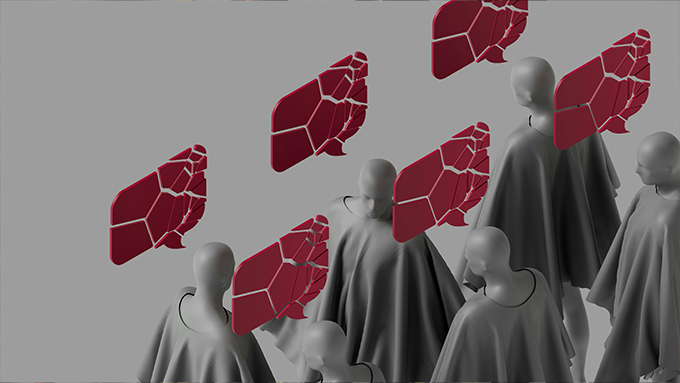
The Competition Board (“Board”) has broad powers to request information from undertakings. The legal basis for this authority is provided by Article 14 of Law No. 4054 on the Protection of Competition (“Law No. 4054”). Under this provision, the Board may request any information it deems necessary from public...
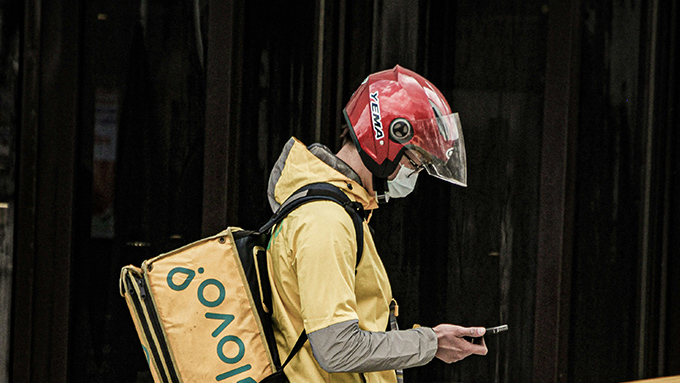
Competition authorities around the world have increasingly focused on labor market infringements under competition law, issuing new regulations and guidance recently. Notable examples include the U.S. Department of Justice and Federal Trade Commission’s joint guidance, the Japanese Fair Trade Commission’s...

Chapter 8 of the General Data Protection Regulation (“GDPR”) sets out the legal remedies available to data subjects in the event of a breach of their rights under the GDPR. Accordingly, each data subject has a right to lodge a complaint with the supervisory authority of the Member State in which they reside, work...

Mergers and acquisitions play a critical role in shaping the competitive structure of the market. Although such transactions can lead to positive outcomes such as the provision of products and services at lower prices, the development of new products and technologies, and improvements in quality, they may also...
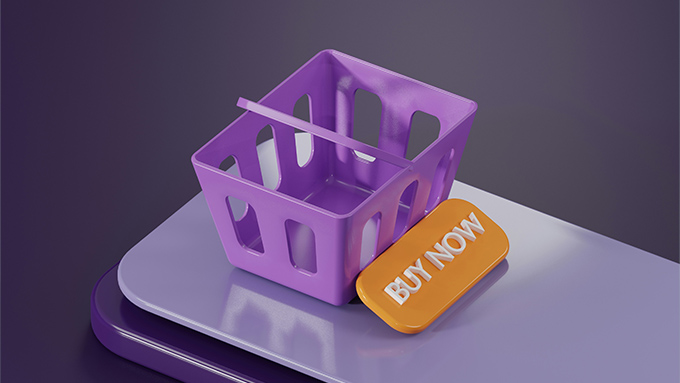
Technology and the opportunities it brings undoubtedly play a key role in strengthening the competitiveness of market players. In this context, pricing algorithms that enable undertakings to monitor publicly available prices and optimize their own pricing strategies have become widely used, especially by digital platforms...

The Regulation on Fines to Apply in Cases of Agreements, Concerted Practices and Decisions Restricting Competition, and Abuse of Dominant Position (“Former Regulation on Fines”), which entered into force upon its publication in the Official Gazette dated February 15, 2009 and numbered 27142, was...

In the past years, the Turkish Competition Board (“Board”) has closely monitored the activities of undertakings operating in the retail sector. As a result of the Board’s record of administrative fines, horizontal type of violations in the retail sector have been highly publicized. Vertical violations such as resale price...

In recent years, numerous automobile manufacturers have announced their goals to reduce carbon emissions, with many brands setting net-zero carbon targets spanning from production processes to the lifecycle of their vehicles. While ongoing debates persist regarding the significantly higher carbon footprint of...

Under Article 15 of Law No. 4054 on the Protection of Competition (“Law No. 4054”), the Competition Board (“Board”) may conduct on-site inspections at the undertakings’ premises when it deems necessary in fulfilling the duties assigned to it. During the on-site inspection, the Board is authorized to examine all...

Agreements and information exchanges between undertakings in labor markets have recently been examined in various preliminary investigations and investigations initiated by the Turkish Competition Authority (“Authority”). Following the investigations in which some undertakings were subject to...

The Turkish Competition Board’s (Board) decision regarding the acquisition of the international road transport business line of Ekol Lojistik AŞ (Ekol) by DFDS A/S (DFDS) has been one of the most prominent transactions on the competition law agenda recently...

The Competition Board (“Board”) has broad powers to request information from undertakings. The Board’s authority to request information arises from Article 14 of the Law No. 4054 on the Protection of Competition (“Law No. 4054”). Under the relevant provision, the Board may request any information it deems...

Doğuş Otomotiv Servis ve Ticaret A.Ş. (Doğuş) applied to the Turkish Competition Authority for an exemption for the practice of recommending basic wages to be applied to sales and after-sales service employees of its authorized dealers and distributors...

Access to Instagram was blocked ex officio by the Information and Communication Technologies Authority (ICTA) as of 2.08.2024. Under Article 8 of Law No. 5651 on the Regulation of Publications on the Internet and Combating Crimes Committed Through These Publications, ICTA can issue an ex officio access...

It is well known that agreements between employer undertakings with regards to their employees, such as wage-fixing and non-poaching agreements, along with competitively sensitive information exchanges have been under the scrutiny of competition authorities all over the world, including the Turkish Competition...

Automotive is one of the sectors in which the world’s most significant investments are made. The Competition Board (“Board”) has been closely interested in the automotive sector over the years and has conducted various examinations and studies in this field...

Competition authorities around the world continue unabated to investigate competition concerns arising from data collection and processing activities of digital platforms and impose severe sanctions as a result...





The startup ecosystem in Turkey has experienced notable growth in recent years. In the last quarter of 2023, 81 startups secured a combined investment of around 60 million dollars. While the number of investments remained consistent when comparing the third quarter periods of 2022-2023, there was a decrease...

Hub and Spoke cartel is a type of violation that is not clearly defined and regulated under Law No. 4054 on the Protection of Competition (“Law No. 4054”). Decisional practices of foreign competition authorities, particularly the UK Competition and Markets Authority’s decisions (“CMA”), are instructive concerning...

The Competition Board ("Board") made an addition to its line of decisions on resale price maintenance with its decision on Sunny Elektronik Sanayi ve Ticaret A.Ş. ("Sunny") . In its decision, the Board thoroughly examined the allegations regarding Sunny's involvement in maintaining resale prices and restricting...

It is observed that the Competition Authority (“Authority”) has recently scrutinized various industries such as fast-moving consumer goods, labor market, pharmaceuticals, and cement. When the reasoned decisions of the Competition Board (“Board”) published in October are examined, it can be seen that the...

Jules Verne says, “Everything on earth has a limited lifespan, nothing that will exist forever can be created by human hands”. Perhaps change is the only constant concept in all our lives. Despite two major world wars and countless periods of crisis, humanity has been undergoing a great change and...

At the meeting of the Fédération Internationale de Football Association (“FIFA”) held on 16 December 2022, the FIFA Council approved the FIFA Football Agents Regulations (“FFAR”). In the FFAR, various amendments have been made, such as the introduction of a maximum service fee limit that football agents are...

Resale Price Maintenance (RPM) is still considered a hardcore restriction under the recently revised Vertical Block Exemption Regulation (VBER), which means that it cannot benefit from a statutory exemption under Article 101(1) TFEU, unlike certain other types of vertical agreements. However, it has been debated...

In competition law, it is important to accurately determine the concept of undertaking, especially in terms of mergers and acquisitions. Therefore, the concept of economic entity aims to reveal the economic units covered by the undertakings. The relationship between the concept of economic entity and family ties comes...

In these days when the Competition Board (“Board”) frequently imposes administrative fines for preventing on-site inspections and both the Competition Authority (“Authority”) and undertakings take legal and technical measures regarding on-site inspections, a striking development has occurred. In its decision...

Online advertising has become an important source for businesses for promoting products and services and meeting consumers, as a result of the rapid development of information technologies and increase in the use of internet. Delivering targeted messages to consumers at the right time through the digital...

Selective distribution systems refer to a type of distribution system in which suppliers commit to selling the contracted goods or services directly or indirectly to distributors selected based on specified criteria, while the distributors commit not to sell the said goods or services to unauthorized...

Fast-moving consumer goods is undoubtedly one of the sectors that the Competition Authority has been working most intensively since the COVID 19 pandemic. Among the most important developments of this period was the Sector Inquiry initiated on Fast Moving Consumer Goods (“FMCG”) Retailing...

In the decision of the Constitutional Court ("Constitutional Court" or "Court") dated 09.11.2022, numbered 2020/67 E. 2022/139 K. (the "Decision"), the annulment of certain articles of the Law Amending the Law on the Protection of Competition No. 4054 ("Law No. 7246") was requested...

In Turkish competition law, certain types of mergers and acquisitions are subject to Turkish Competition Board’s (“Board”) approval in order to gain legal validity. Pursuant to Article 7 of the Law No. 4054 on the Protection of Competition (“Law No. 4054”), the Board is competent to define mergers and acquisitions...

Recently, the Competition Board (the Board) had imposed administrative fines on banks and financial institutions for failing to respond to the request for information within the scope of a preliminary investigation.[i] The request for information that lays the groundwork for the administrative fine imposed by...

Amazon, a world-famous company, is an e-commerce company that operates the world’s largest online shopping platform. In the backstage, Amazon is a data-driven company whose retail decisions are mostly driven by automated systems, fueled by the relevant market data. That being said, Amazon has a dual...

The right to make on-site inspections is one of the Competition Board’s (“Board”) most important tools for revealing whether Law No. 4054 on the Protection of Competition (“Law No. 4054”) has been violated. The effective use of this authority is quite important in terms of obtaining fruitful results from...

“Harese” is an interesting Arabic word. There is a thorn that camels love very much in the desert. The camel eats the thorn with great greed. So much so that, its mouth bleeds as it eats, but it doesn't stop eating. The taste of the thorn is mixed with the salty taste of its own blood. This mixed taste drives the camel...

Turkey’s leading pay television service provider, Krea İçerik Hizmetleri ve Prodüksiyon A.Ş. (“Digiturk”), is frequently the subject of complaints made to the Competition Authority (“Authority”). In fact, the Competition Board (“Board”) issues a new decision about Digiturk almost every year. In these decisions...

The French Competition Authority (Autorité de la Concurrence), within the scope of the competition law proceeding initiated upon the complaint of Criteo SA (“Criteo”), accepted the commitments proposed by Meta Platforms Inc., Meta Platforms Ireland Ltd., and Facebook France...
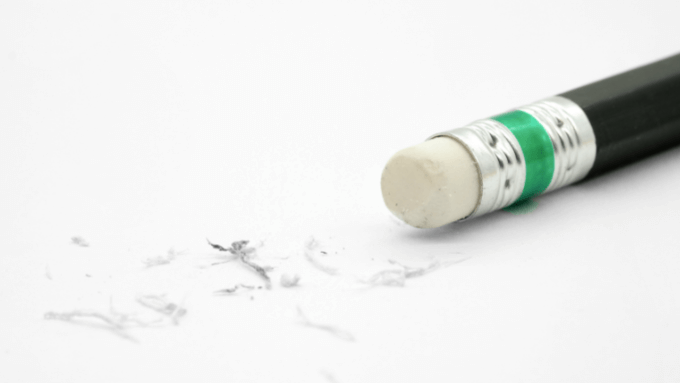
While the scope of Competition Board’s (“Board”) power to conduct on-site inspections has increased with the introduction of Guidelines on Examination of Digital Data during On-site Inspections (“Guidelines”), nowadays the amount of monetary fines imposed on undertakings continue to...

The hub and spoke cartel, which is a relatively new type of violation in terms of Turkish competition law, is defined as the indirect exchange of information between two independent undertakings which are horizontal competitors on the supplier or retailer level, through another undertaking...

The settlement mechanism has only recently been introduced to Turkish competition law practice. It entered into force with the amendment made to the Law on the Protection of Competition (“Law”) numbered 4054 on 16.06.2020, and has been in effect for less than two years. In this relatively...

Due to their increasing share in the economy and rapid growth rate, e-marketplace platforms have come under the increasing scrutiny of the Turkish Competition Authority (“Authority”) as well as many competition authorities around the world...

Pursuant to the Amendment Communiqué Concerning the Mergers and Acquisitions Requiring the Competition Board’s Approval (“Amending Communiqué”) published in the Official Gazette dated March 4th, 2022 and numbered 31768, certain amendments have been introduced...

The Competition Board (“Board”) has recently published a reasoned decision in which it evaluated BSH Ev Aletleri Sanayi ve Ticaret A.Ş.’s (“BSH”) request for negative clearance or exemption with regard to its practice of prohibiting authorized dealers from making sales through online marketplaces...

Shahmaran, a Mesopotamian myth, is believed to take place in Tarsus. According to the myth, the shah of snakes is the immortal and omniscient "Shahmaran." Shahmaran is described as a beautiful woman living in her cave with her snakes...


During the COVID-19 pandemic, competitive concerns about the pricing behavior of chain markets, manufacturers, and wholesalers engaged in the retail trade of food and cleaning supplies led to an investigation by...

When the past decisions and the recent decisions of the Competition Board (“Board”) are examined, a significant increase can be observed in the number of decisions where the Board found hindrance or obstruction of on-site inspections. This situation shows that...
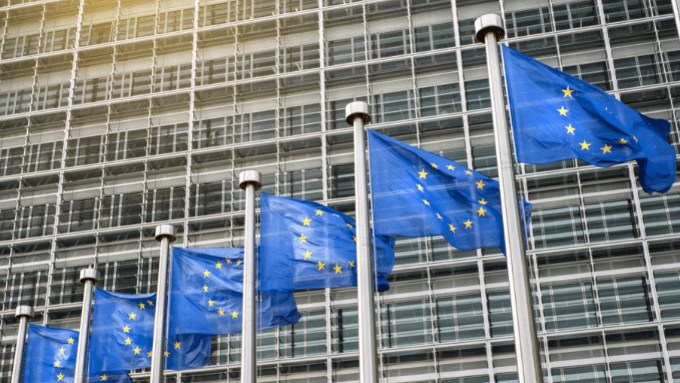
The European Commission began investigating the collusive behavior of Credit Suisse, UBS, Barclays, RBS, and HSBC in the Foreign Exchange (forex) spot trading market in 2019. With the recent press release dated 02.12.2021, the Commission announced that the case is now closed...


Digitalization, in particular, necessitates the rewriting of competition law rules. Competition law is at the center all questions regarding e-commerce and digital platforms. The aforementioned platforms, which have become prominent due to innovations in...
















































